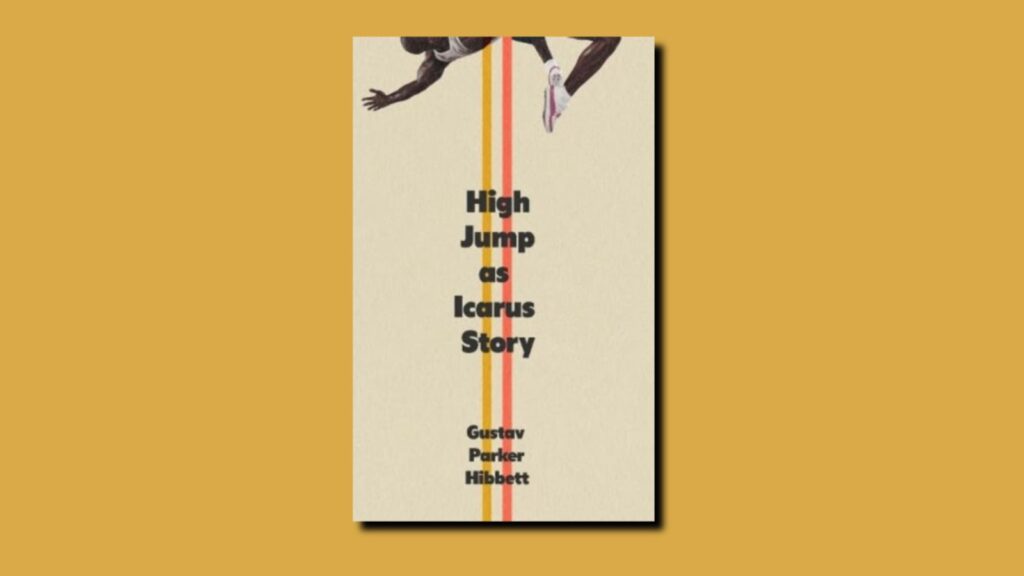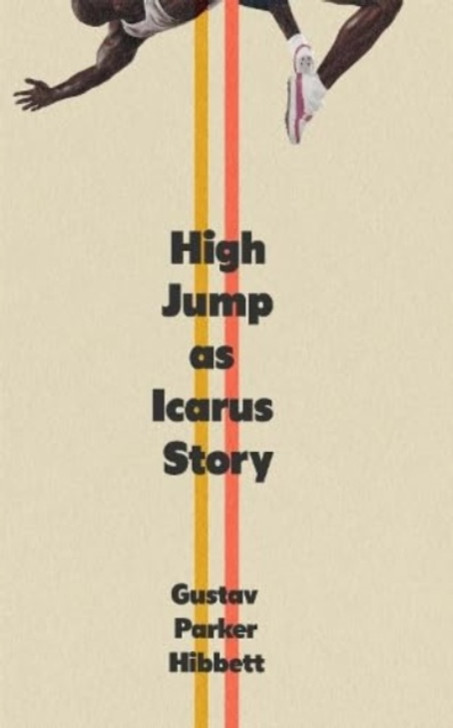
High Jump as Icarus Story|Gustav Parker Hibbett|Banshee Press
Incredible emotional range and formal inventiveness—High Jump as Icarus Story, by Gustav Parker Hibbett
by Ruby Eastwood
If, as Claude Lévi-Strauss suggested, ‘the purpose of myth is to provide a logical model capable of overcoming a contradiction’, then a problem arises when the myths available to us can no longer contain, let alone overcome, the contradictions of our lived experience.
Gustav Parker Hibbett’s new poetry collection High Jump as Icarus Story is a complex reexamination of myths surrounding Black masculinity, and an attempt to forge a private self-mythology complex enough to contain all kinds of contradictions.
The approach is improvisational, playful: as the title suggests, the poems plug elements of autobiography into the mainframe of different mythic structures, trying them out. But none of the archetypes Hibbett draws on, from ancient Greek heroes and Shakespearean monsters to modern cinema and music, feel random: they all feel weighty, as if chosen with a quiet reverence and held together associatively.
The opening poem plunges us into the dream of a tortoise:
you are however a jumper
among the tortoises it is you
who likes to push the vertical
legs stumpy as they are it’s not
much but look it’s something
to define yourself around isn’t it
Hibbett’s language captures the emotional clarity and slangy rhythm of ordinary speech, but there is something mysterious happening underneath the apparent simplicity. ‘Tortoise’ has the delicate sadness and strangeness of an Edward Lear verse, and it introduces us to the concept that will tie the collection together: the idea of the high jump. This act of athleticism, an impossible dream of flight, is one of the fixed points in Hibbett’s private self-mythology.
There’s an incredible emotional range and formal inventiveness in these poems that allows Hibbett to circle around the same themes, holding them up to the light, finding new shades of meaning. ‘Diversity Statement (500 words)’ is printed inside a box to mimic the layout of a form, and the poem gently satirises the idea of having to trim down an experience ‘Until everything about me summarized to fit a single sheet of paper.’
There’s an incredible emotional range and formal inventiveness in these poems that allows Hibbett to circle around the same themes, holding them up to the light
The brilliant ‘What I Would Have Wanted Fleabag to Say for Me, Had the Priest Not Brought It Back To Sex’ is structured like a prayer, a plea for absolution far darker and more vulnerable than the title would suggest. The poems in this collection feel carefully patterned not just thematically but in how they are arranged and shaped, sparking unexpected connections. ‘High Jump as the Kind of Painting It Burns to Stand in Front of’ and ‘High Jump as Life Lessons (ii)’ poems that are set close together, look like mirrored wings, and we can almost imagine them as those of Icarus, melting and falling through the pages.
Many of the poems are historical, channelling the ghosts of Black America. ‘In which I attend my own lynching’ has all the deceptive, dream-like simplicity of a ballad, and its atmosphere of horror lodges in the imagination because the setting is so ordinary: ‘Someone has a punnet of strawberries’.
Many of the poems are historical, channelling the ghosts of Black America
Hibbett’s poems attempt to express the torn psychic tissue of a nation using its own images. In ‘Joni Mitchell dresses up as me (I)’ they reference the singer’s blackface alter ego, and later in the collection, Part II imagines Mitchell taking off the costume and the poet stepping into it, going out to ‘walk/ the streets, the jagged jazz clubs, alleys/ of the white imagination’. The idea of a Blackness that’s constructed by the white gaze, the fear of stepping into someone else’s fantasy of you, is a recurring nightmare in the collection. Poems like ‘Othello as Singer-Songwriter’ arm against it with humour, imagining a different story of masculinity and race: ‘he loves his Desdemona/ passionate — no need for jealousy.’
There are prose poems like ‘Pink’, that dig into childhood memory, and then there are pared down poems like ‘On Beauty’ that achieve a kind of hard perfection. It takes a single image, a pirouetting ballerina, then extrapolates out into something metaphysical:
To stop the world static
like a VHS on pause, a grey-black space station
ln zero gravity, an exoplanet twirling on a tidy axis.
Delicate, invincible. Fingertips up straight, palms
flat together, wrists wound once around each other,
arms falling as I spin, grand unfolding
lotus, clarity exonerated on a self.
Hibbett’s skill as a poet can be felt not just in the stark beauty and unexpectedness of their images, but in their attention to silences and spacings; the way their poems carefully leave room for different meanings to flower. Take these lines from ‘grendel’, a poem about otherness and monstrosity:
my professor teaches caliban only
through the way he hurts miranda
so that he remains invisible to us
In the long space between ‘he hurts’ and ‘miranda’, the paradoxes of victimhood and violence unfurl as the mind reshuffles the objects in the sentence.
In ‘grendel’, as in many of the collection’s poems, there’s a braided balance between the academic and the personal that’s in vogue in contemporary poetry. As a trend, it can read like the poet is trying to hide real feeling behind a cloud of obscure and often irrelevant learning, the way a squid shoots out ink and darts off in the opposite direction. But Hibbett’s references always feel as if they are there to elucidate an emotional truth, and sometimes the academic scaffold falls away to reveal sentences that are confronting in their naked vulnerability. Take this line from ‘Lunar Cycle’, a prose-poem about filial responsibility and guilt: ‘Now I live across at least 5000 miles of land and sea, and still I never call.’
It’s the clear, unsentimental emotionality of Hibbett’s voice that makes them so distinctive. High Jump as Icarus Story is a collection that feels complex and lived-in. It documents the construction of a private self-mythology and affirms that old stories can be recontextualised, cast in a new light.












